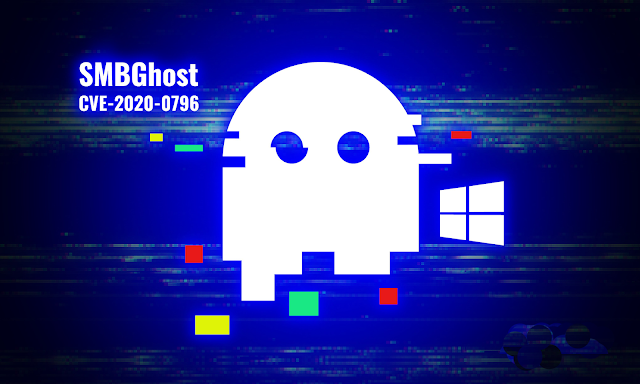What is Vulnerable & SMBGhost ? How To Protect With Total security
More than 100 Thousand Systems are Still Vulnerable to SMBGhost
Microsoft fixed the
SMBGhost vulnerability (CVE-2020-0796) in Windows SMBv3 back in March this
year, but more than 100 thousand systems are still vulnerable.
SMBGhost affects
Windows 10 and Windows Server 2019, and CVSS scored a maximum of 10 on the CVSS
vulnerability rating scale. The vulnerability exists in version 3.1.1 of
the Microsoft Server Message Block (SMB) protocol, the same one used by
cybercriminals to distribute ransomware WannaCry in 2017.
As a fix for the
vulnerability, Microsoft has released KB4551762 update for Windows 10 (versions
1903 and 1909) and Windows Server 2019 (versions 1903 and
1909). Alternatively, the company also suggested that administrators
disable SMBv3 compression using PowerShell. To protect clients from
external attacks, you must block TCP port 445 at the network perimeter
border. Due to this, Kopriva also checked through Shodan how many IP addresses
with open ports 445 are available over the Internet. As it turns out,
almost 8% of all IP addresses have port 445 open.
System administrators
are strongly encouraged to install this hotfix as there are a number of PoC
exploits available on the web. Although most attempts to exploit SMBGhost
end in denial of service or escalation of privileges, in June of this year
someone using the alias Chompie published a PoC exploit that allows
remote code execution.
Fixed Dangerous Privilege Escalation Vulnerabilities in NVIDIA DGX Servers
To exploit the problems, criminals need network access to the DGX Server
AMI Baseboard Management Controller software.
NVIDIA has released a
security update for NVIDIA DGX-1, DGX-2, and DGX A100 servers that addresses
multiple vulnerabilities in AMI Baseboard Management Controller (BMC)
firmware. Their exploitation allows an attacker to remotely execute code,
increase privileges on a system, or disclose information. To exploit the
problems, criminals need network access to the DGX's BMC.
A total of 9
vulnerabilities were fixed. The most dangerous of them (CVE-2020-11483)
received a score of 9.8 on the CVSS v3.1 scale and affects the AMI BMC firmware
of NVIDIA DGX servers. The problem stems from the fact that the firmware
contains built-in credentials that can allow privilege escalation or
information disclosure.
The vulnerabilities
were discovered by specialists Sergey Gordeichik, Roman Palkin, Denis Kolegov
and Maria Samoilova (CVE ‑ 2020‑11483, CVE ‑ 2020‑11487, CVE ‑ 2020‑11489, CVE ‑
2020‑11484, CVE ‑ 2020‑11615, CVE ‑ 2020‑ 11616, CVE ‑ 2020‑11486, CVE ‑ 2020‑11488,
and CVE ‑ 2020‑11485).
NVIDIA strongly
recommends that users update to the latest software. As a preventive
measure, it is recommended to restrict connectivity to the BMC, including the web user interface, to trusted management networks.
Your first line of defence is to be proactive by using comprehensive Total security software, like Total Security, that protects against both known and unknown threats.
This Total security checklist to be sure you are doing everything you can to help keep your information protected from the security risks associated with vulnerabilities to SMB Ghost
Install a proactive and comprehensive Total security, software to help block known and unknown threats to vulnerabilities.




Comments
Post a Comment